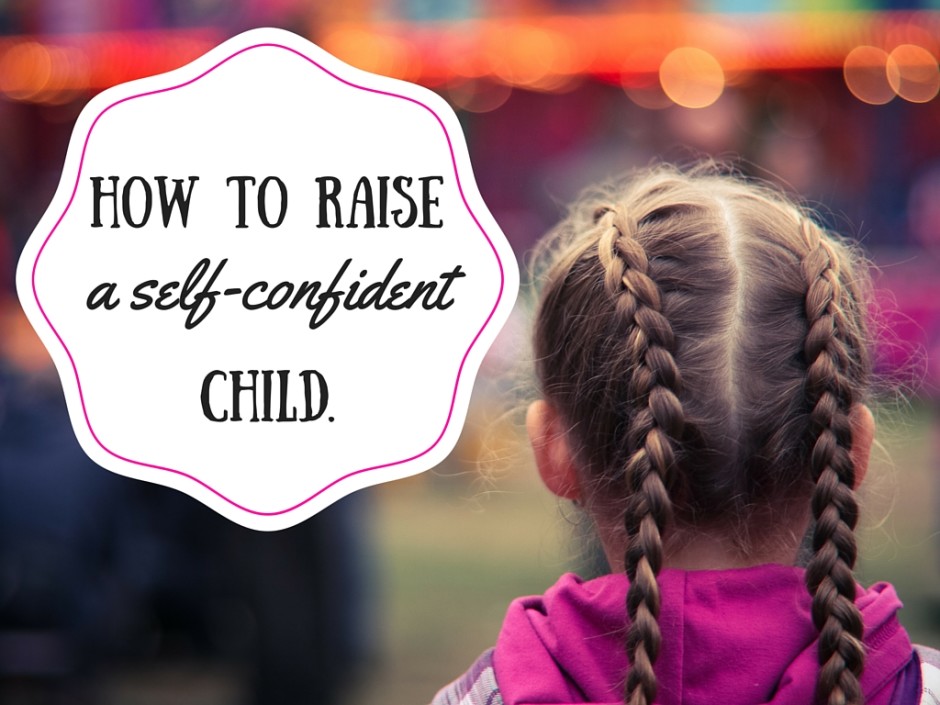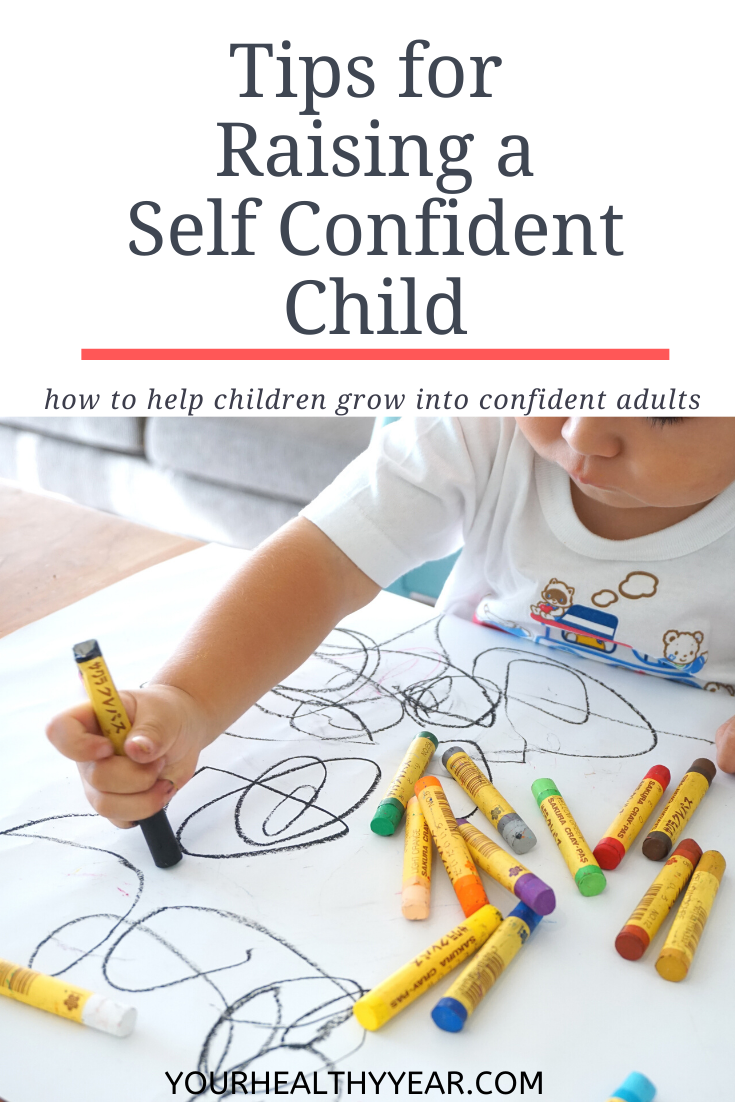As parents, we want our children to be confident in themselves. Raising confident children is one of the keys to making sure they end up leading a happy and successful life. Of course, making sure you are raising confident children can be tricky, and every child is different, but there are several things parents can do to help boost their child’s self confidence.

Making Sure Needs Are Met
This one should really go without saying, because every parent wants to make sure their child’s basic needs are met, but there is a good reason to put an emphasis on this one.
Studies have shown that babies and children who have their needs met on a consistent basis, have learned that they are worth paying attention to. These are the basic needs like food, comfort, attention, having someone listen to them, etc. By making sure they have what they need and have someone consistently providing these things for them, they will learn that they have worth. Professionals believe the best way to accomplish this is by practicing attachment parenting. Others simply say that by consistently and promptly meeting needs sends a positive message to children.
This one isn’t rocket science. Providing your children with healthy meals, clothes to wear, a warm bed to sleep in, having toys to play with, and having someone who is there to listen and play with them is enough to make sure their needs are met. Regular everyday things that we wouldn’t give much thought too, but make a huge difference in sending a message to a child that they matter and they deserve to have these basic needs met. Confident children are able to articulate what they need, but also are better able to let someone know when their needs are not being met.

Play with Your Children
Your child learns about, and learns how, to interact with their world by playing. When a parent takes time to participate they are validating this approach. You are showing your child that you like the same things they do and that they are sharing their world with you. This can also help children learn how to interact socially with others.
Sometimes parents tend to get pushy about teaching their children that they need to complete tasks and learn the value of hard work. Of course these things are important, but when your child is very young it is time to take advantage of their playfulness. Embrace this time and make sure you take the time to play with your child. It can actually be therapeutic for parents to play with their kids!
Read, dance, builds forts, do silly things. Teach your kids how to have fun and enjoy themselves. Show them that their is value in playing and being happy. Try not to push them into doing things or playing things they might not want to do. For example, if they haven’t quite picked up how to complete a puzzle of shapes, don’t get pushy and insist they finish, and don’t make a big deal that they are unable to finish. Just move on and come back to it at a later time.
Put on a Happy Face
We aren’t happy all the time and parents can often get stressed. Of course this is understandable and you don’t need to create a persona that is happy all the time – it’s just not realistic. If your child receives the message that they are a source of stress for you they will begin to take on that identity. Your child will see themselves as an annoyance and this undermines confident children.
Try and keep the adult issues and conversations away from kids. If there are certain things stressing you out, try and not let it show to your children. Obviously this is sometimes easier said than done, but it’s worth trying to keep kids out of adult business for as long as possible.
Keep Your Tongue in Check
Following up with the paragraph above, try and avoid complaining about your children when they are within earshot. No one has ever said parenting is easy and kids can get on your nerves. Let’s be honest, kids can be little terrors sometimes. If you feel the need to vent to your family or friends about your child do it when your child is not present or once they are asleep. Letting your child constantly hear about their faults or downfalls will tell them that’s who they are, when in reality they are little humans trying to understand the world and how to act.
Kids can act out for a number of reasons, it’s not just their personality that makes them little terrors. It will often pass with consistent parenting.

Give Chores But Also Give Choices
Giving children age appropriate chores can be very beneficial. It can teach them how to help around the house, take pride in their house and belongings, and help them grow into productive members of society.
It’s also important to give children choices. Of course there are some things that they will ‘have’ to do, like cleaning their room, but it’s also important to give children choices. Giving them choices helps them feel empowered and tells them their voice matters. It also helps them develop decision making skills they can use later in life.
Of course, giving children choices doesn’t only relate to chores, it could also be as simple as deciding what they will have for supper or what the family will watch on movie night. As long as the choices are within limits set by the parent.
Don’t Holdback Your Love
It is important that you never withhold love from your child if they fail at something or disappoint you. This will send a message to your child that their accomplishments are more important then they are. Make sure your child knows that you love them no matter what happens.
This doesn’t mean that you need to accept constant failure or that you can’t encourage them to do better. The most important thing is that your child knows your love is unconditional.
Privileges are conditional, your love shouldn’t be.
You don’t want to teach your child that they need to constantly be accomplishing things and have to always succeed to earn your love. This only tells them that failure is not an option, and puts unnecessary stress on children. They become adults that can’t deal with failure or disappointment, when in reality, it’s a huge part of life. Confident children grow up into confident adults, who are better equipped to deal with life.
